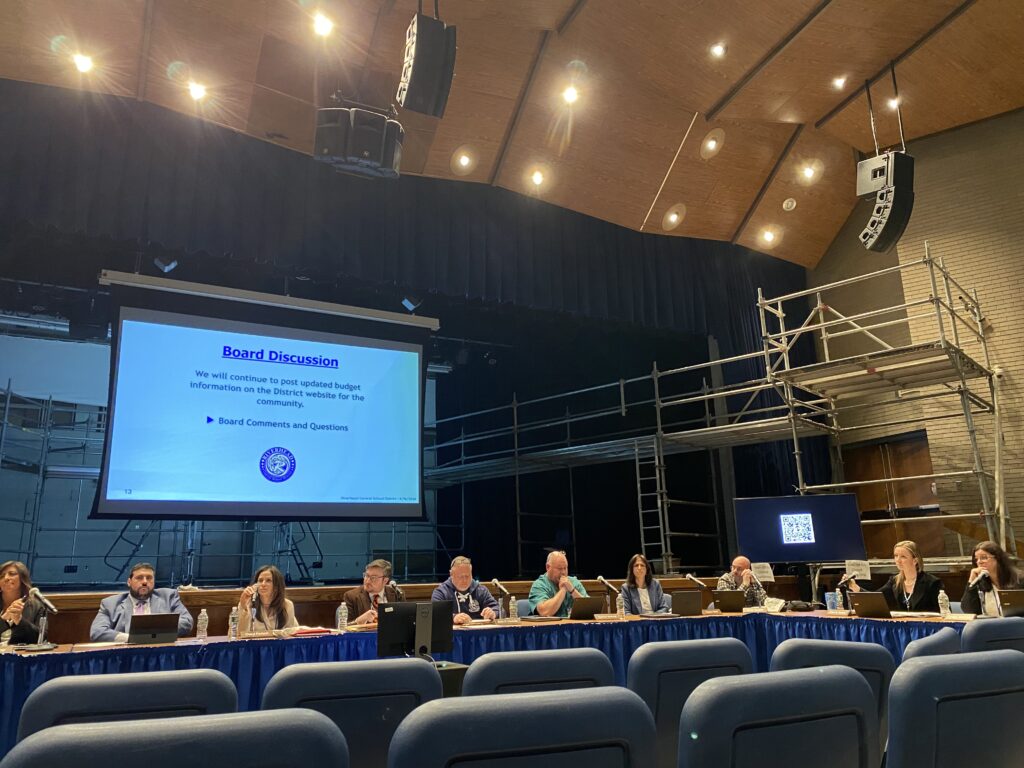Editorial: Great change is already upon us

What is ahead for the North Fork in the coming years is very much an open question. In areas such as farmland preservation, the drive to save this precious resource will continue. Saving what’s left is a worthwhile goal.
There are other great economic transformations underway, the impacts of which are yet to be determined. Certainly, the effort to build affordable housing will be made even more challenging as housing costs and buildable land prices soar. Some central questions are: Who will be able to live here? Who will be our first responders?
But in terms of climate change and how it will affect on the North Fork, the picture is becoming clearer each year. It’s happening right before our eyes. The unknowns facing all of us include: How big will the impact will be and how will it change our landscape?
The march toward dramatic climate change took an ominous new turn last week with the release of a report that a critical system of ocean currents in the Atlantic is showing signs of instability. The United Nations’ Intergovernmental Panel on Climate Change underscored this report by issuing a dire warning about the future.
These currents help control weather patterns in the Northern Hemisphere and a collapse would have enormous consequences for the Eastern Seaboard and, far beyond that, for life on this fragile planet we call home but treat like a garbage heap.
This system of moving water is called the Atlantic Meridional Overturning Circulation. Its role as part of the Gulf Stream is to convey warmer water from the south and distribute it farther north and to circulate colder water southward. The study says the AMOC is at “an almost complete lack of stability.”
Scientists — the people millions of Americans don’t seem to trust on this important issue — have predicted this for quite some time. But now they say the situation is being made worse by melting ice sheets.
Last month a Danish research institute said recent heat waves caused Greenland’s biggest melting event so far — with enough ice lost to cover all of Florida in two inches of water. In 2019, Greenland shed 532 billion tons of ice into the sea.
The AMOC study makes clear that climate change is the driving force behind the destabilization of the currents. In places like western Africa, the impact would be permanent drought affecting millions, which would in turn lead to a massive migration of people trying to escape.
Those of us who live on the North Fork know it is a narrow peninsula of rich farmland that sticks out into the Atlantic like an arthritic finger. The region was a great food basket to the Native peoples who lived here for thousands of years and the Europeans who came in the 17th century. The bays and creeks teemed with food; the growing season was months longer than in northern New England. This place was a gift to the newcomers — as it is today.
Here, there is saltwater on both sides and not much elevation on land. In places like the causeway to Orient or the roads north and south of Hashamomuck the water is mere yards away. The roadway in front of the Sound View Motel in Greenport was recently reworked, to the tune of millions of dollars, to make it safer. But that project didn’t raise the roadway or move it farther south, meaning it remains susceptible to nor’easters and extreme high tides.
Politicians tend to deal with what is immediately in front of them. Long-range planning is done by nonprofits and academic institutions. But how will Riverhead and Southold handle rising water levels and more destructive storms? How will our businesses manage it? Our sewer and electrical systems? Will some people in very expensive homes be able to rebuild if their land is threatened by rising sea levels?
Nationally, we are not equipped to answer the Big Questions of the day. The disgrace is how much time we have wasted arguing with each other. The common good? What’s that? In the current political climate, one person’s violent mob is another’s Black Friday sale. Consider that just last month, the Republican senator from Wisconsin, Ron Johnson, told a GOP audience that climate change was “bull—-.”
We need to be better able to predict what is coming and create a master plan for how to deal with it. New York State should consider funding a Climate Change Institute at Stony Brook University.
But in this political moment, where scientists are mocked and even slandered, this unfortunately appears to be a bridge too far.








